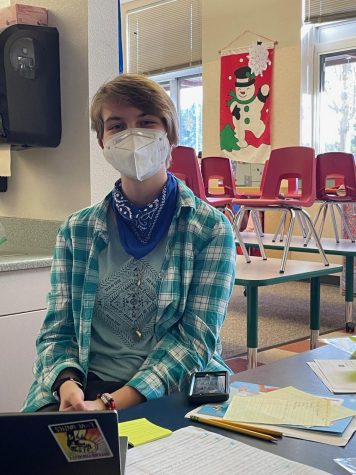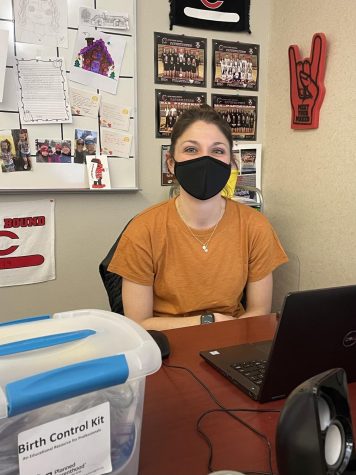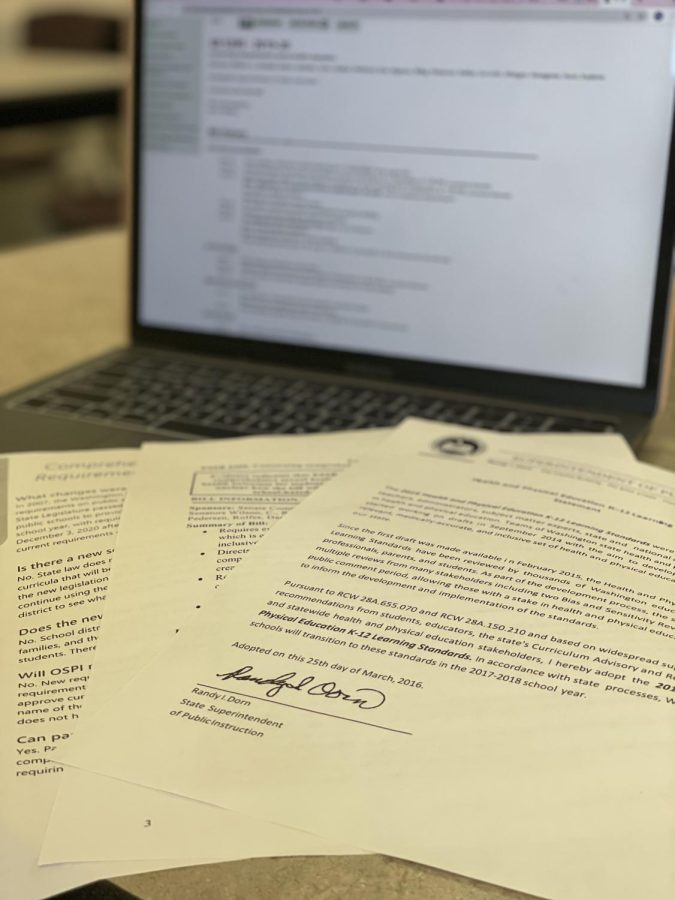Senate Bill 5935 Controversy
January 20, 2022
Washington state voters and legislation passed Senate bill 5935 in 2020, and it will come into full effect by September 2022-23, incorporating healthy decision-making skills and inclusivity into Washington public school sexual education, potentially altering Camas High School sexual health curriculum for freshman health classes. The act is nicknamed the ‘K-12 sex-ed act’ since it aims to educate all public school ages on medically and scientifically accurate information regarding sexual health. The most controversial changes begin sexual health education in fourth grade rather than sixth as many Camas public school students experienced, and first graders will begin with understanding medically-accurate names for external reproductive systems.
There have been some misconceptions regarding the full extent of information being provided to the younger ages. Junior Erin Connelly said, “I remember this uproar, now that you mention it. They’re not teaching kids how to have unprotected sex, they’re teaching younger kids to use pronouns for each other and to be nice to each other, and how to consent to give their friends hugs. They’re teaching basic inclusivity.”

The act was implemented and will be fully executed by the 2022-23 school year. High school students may experience an expanded education to include more than the simple and traditional abstinence-only curriculum. Gender roles, identity, and expression are incorporated into primary, middle, and high school education, as well as sexuality and sexuality expression. Some at CHS express varying views on the extent to which public schools should be responsible for sex-ed, in contrast to leaving guardians in control of their child’s knowledge on this subject.
Senior Luke Martinez said, “People should decide for themselves what to do about that, they shouldn’t be told what they exactly have to [teach] or even what not to.”
Health teacher Kristine Straw uses an efficient method of keeping guardians informed during the sex-ed unit by emailing the families each night to spark healthy conversation between student and guardian. Straw said, “As a parent myself, I really think, especially at the younger age, a lot of it should come from home, with the types of conversations we have around beliefs, culture, and tradition because that’s different for all of us.”

Many people have expressed their concern about the bill while others believe the bill will educate young children on the correct terminology and appropriate ways to communicate with others both verbally and physically.
Connelly said, “You obviously have to be age-appropriate from an understanding level. But I think using scientific terminology is much better than trying to emphasize things. It’s far easier when it comes to the kids to just understand how their body works and there’s nothing dirty about that.”
Straw said, “I also think starting just conversations at a young age is important because a lot of kids are seeing things at a younger age, so they wonder and question, but they don’t have a place to go to get the answers.”
While many agree that the conversation should start at an early age, the controversy arises with exactly what should be discussed. Martinez said, “They taught a little bit of [sex-ed] in elementary school, but I don’t think they need anything more.”
Overall, despite the controversy of the contents within the bill, it will go into full effect by the next school year. High school students in Washington don’t anticipate large changes to their curriculum, yet teachers and younger students look forward to a more inclusive curriculum to support all varieties of families and self-expression.


































